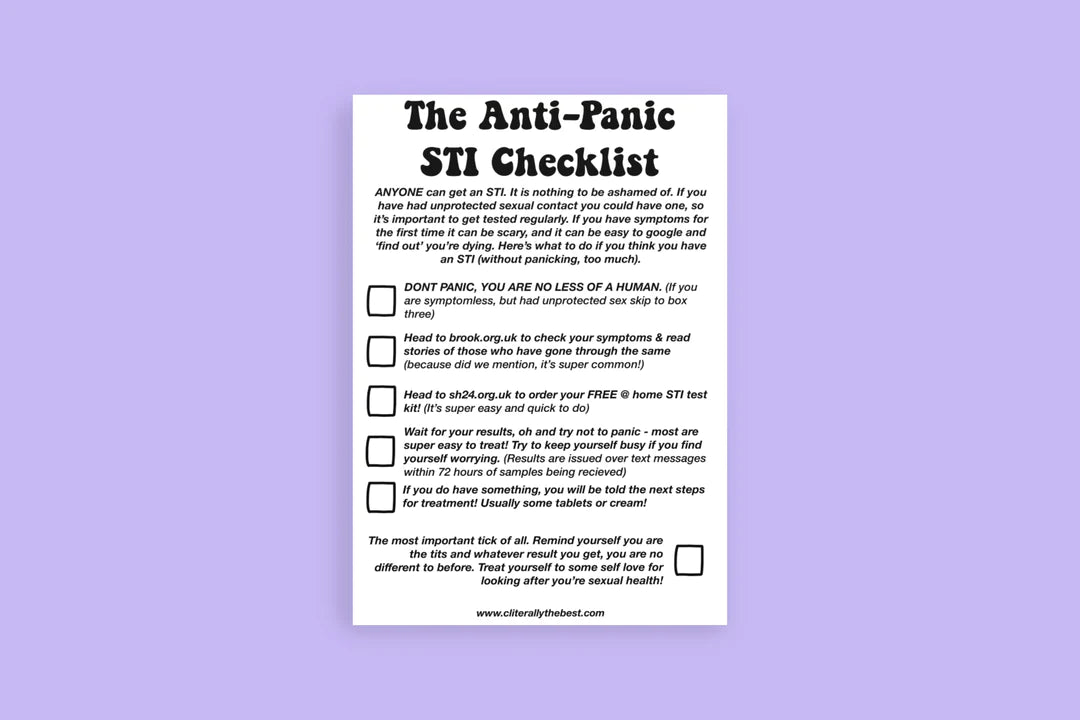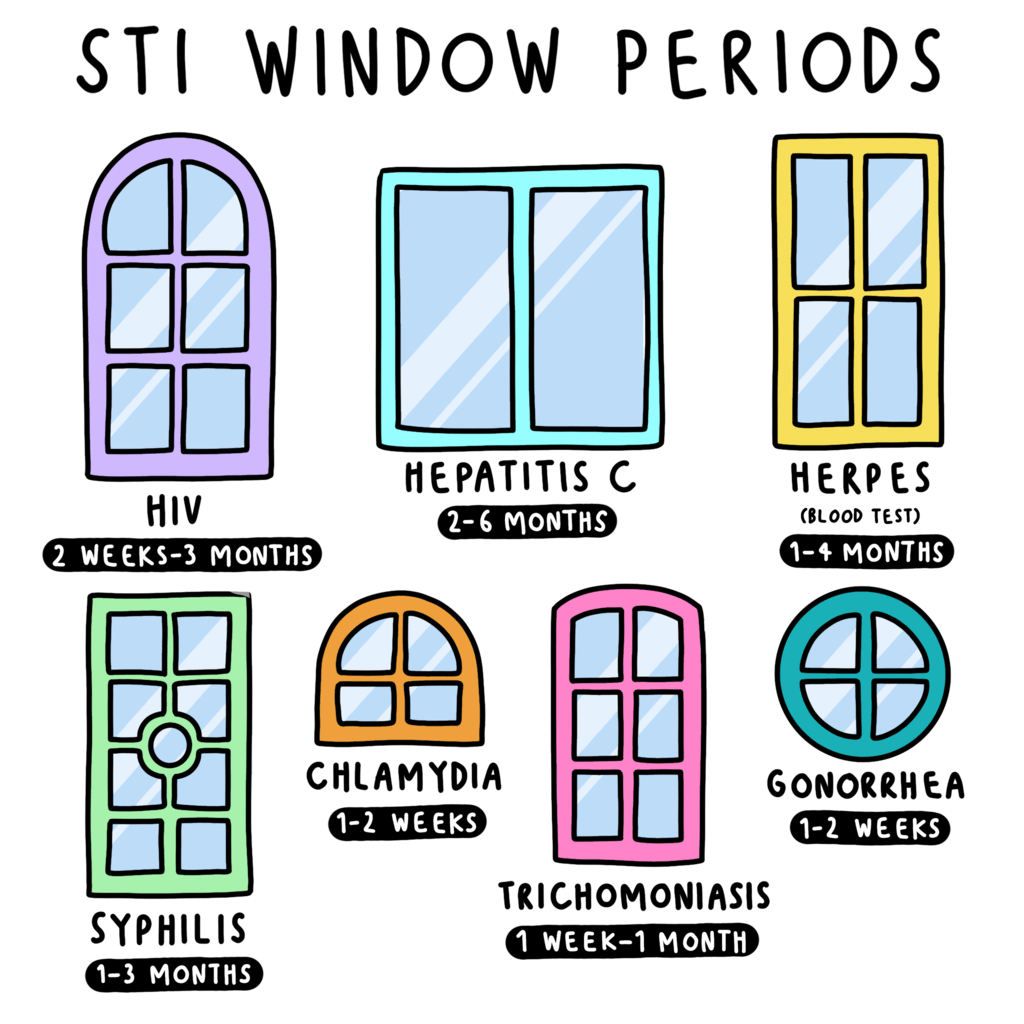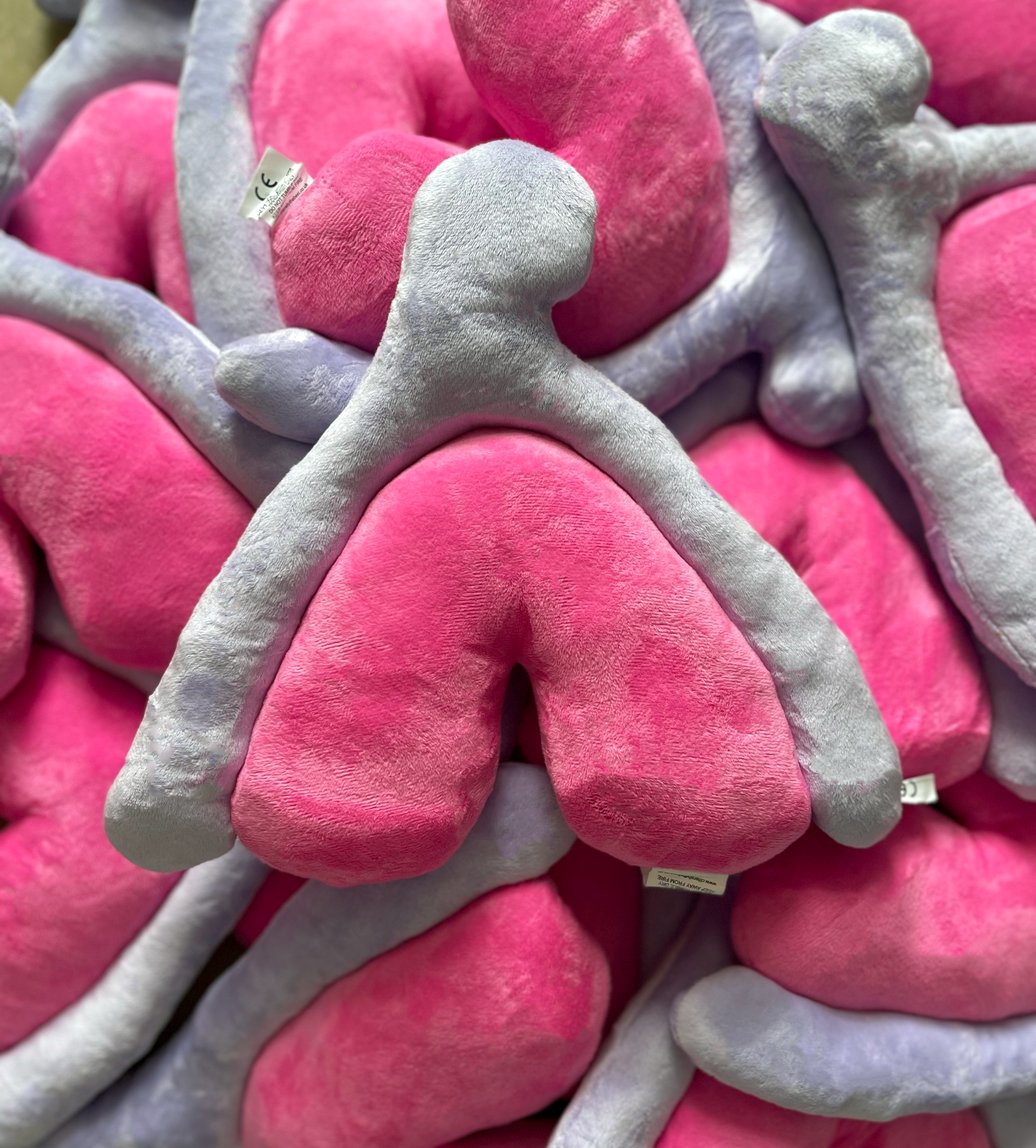An STI is any kind of bacterial or viral infection that can be passed on through unprotected fun.
Contracting an STI isn’t just something that happens to those who sleep around (which is more than fine), it doesn’t matter how many times you’ve had sex or how many partners you’ve had; anyone can get an STI.
So let’s throw the judgement away and focus on educating ourselves and others on signs to spot and how to treat these pesky infections!
"How often should I be getting tested?"
If you’re sexually active, it’s a good idea to get tested for STIs every year, even if you feel fine or are in a relationship.
It’s a good practice to go for testing after every new partner(s) once the STI window periods have passed. Ask your partner(s) to do the same. The most common symptoms of an STI is no symptoms at all so you may not even know you have one unless you get tested.

We're all human, print out this Anti-Panic STI Checklist before you panic.
We're all human, print out this Anti-Panic STI Checklist before you panic.

The sex education you never got.
Types of Sexually Transmitted Infections (STIs)

Mycoplasma Genitalium (MGen or MG) is a bacteria that can be spread through unprotected vaginal and anal sex.

Window periods are the time between you having sex and an STI being able to show up on a test! It’s super important to know these as many people go and get tests right after unprotected sex. It’s ...

Find out all about Syphilis with Cliterally The Best. Symptoms, Causes & Treatments. Keep your body safe!

Find out all about Trichomoniasis with Cliterally The Best. Symptoms, Causes & Treatments. Keep your body safe!

STI Window Periods
Window periods are the time between you having sex and an STI being able to show up on a test!
It’s super important to know these as many people go and get tests right after unprotected sex. It’s most likely if they did get something it won’t show!
This is not to be confused with the incubation period – this is how long for the infection to produce symptoms (but remember, the most common symptom of STIs are no symptoms at all!)
HPV is not included as you can't do a blood/routine STI test for this, only a cervical/anal screening for cells!
Common questions around STIs
There is SO much misinformation surrounding STIs so it is important to dispell the common myths to avoid unneeded shame and panic - we're all human!
Can I catch an STI on a toilet seat?
A super common one - no. STIs (like a lot of bacterias) cannot survive outside the body. It is pretty much impossible to contract one by sitting on a toilet seat.
How often should I get an STI test?
If you’re sexually active, it’s a good idea to get tested for STIs every year, even if you feel fine or are in a relationship.
It’s a good practice to go for testing after every new partner(s) once the STI window periods have passed. Ask your partner(s) to do the same.
Some STIs have no symptoms so you may not even know you have one unless you get tested.
What happens when you do an STI test?
The doctor/nurse will discuss with you what tests they think you should have depending on the questions you answer.
Make sure you are honest, they are not here to judge just to keep you healthy!
The STI tests might involve:
A pee sample. A blood sample. Taking swabs from down there. An examination of your genitals.
The postal kits usually have a blood test & swabs depending on what you fill out on the order form.
How is the sexual health clinic different to the GP?
The sexual health clinic tends to be more knowledgable as its what they specialise in and deal with everyday!
I also find they are more personable and much better at putting you at ease.
Both are qualified to deal with these situations.
Will my parents/guardians be told?
All the information in your notes on the computer and from the discussions you have with them are strictly confidential. It can sometimes be useful to share your records with your GP but they will not do this without your express permission to do so.
The only other time they would tell anyone else about your visit would be if:
You are under 18 and tell them about someone who has abused you sexually, physically or emotionally. You are 12 or under and tell them that someone has had sex with you. Your life is at serious risk. You tell them about someone under 18 who is being abused. Another person’s life is at risk.
How long does it take to get my STI test results back?
Some places can give you the results there and then but most it will be 24-48 hours.
At home tests usually take 48 hours.














